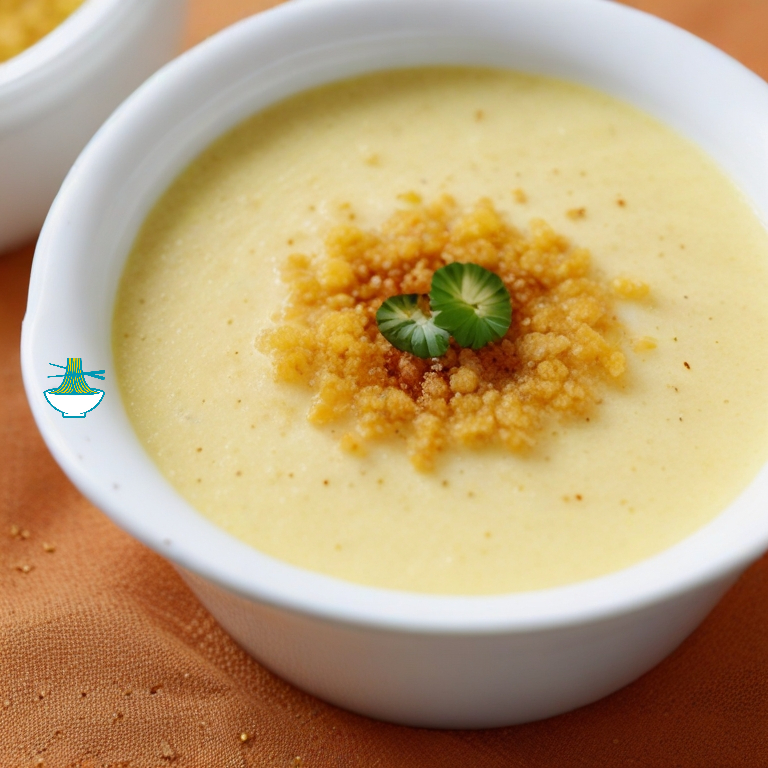Indulge in the rich culinary heritage of Georgia with this exquisite dish, Georgia Ghomi. This traditional cornmeal porridge is a beloved comfort food, celebrated for its creamy texture and comforting flavors. Our recipe captures the essence of Georgian cuisine, blending simplicity with sophistication to create a dish that is both satisfying and flavorful.
Crafted from locally sourced cornmeal, Georgia Ghomi offers a delightful blend of smoothness and subtle graininess, perfectly complemented by the addition of aromatic herbs and spices. Whether enjoyed as a hearty breakfast, a nourishing side dish, or a satisfying main course, this dish is sure to tantalize your taste buds and transport you to the vibrant streets of Georgia.
Prepare to embark on a culinary journey with our easy-to-follow recipe, featuring step-by-step instructions and helpful tips to ensure that your Georgia Ghomi turns out flawlessly every time. Whether you're a seasoned chef or a novice in the kitchen, this classic Georgian dish is guaranteed to impress your family and friends and become a cherished favorite in your home.
Ingredients:
- 1 cup yellow cornmeal
- 3 cups water
- 1 teaspoon salt
- 2 tablespoons butter or olive oil
- 1 tablespoon finely chopped fresh herbs (such as parsley, cilantro, or dill) (optional, for garnish)

Instructions:
1- In a medium-sized saucepan, bring the water to a boil over medium-high heat.
2- Once the water is boiling, gradually add the cornmeal to the saucepan, stirring constantly to prevent clumping.
3- Reduce the heat to low and continue to cook the cornmeal, stirring frequently, for about 10-15 minutes or until the mixture thickens to a porridge-like consistency. Be sure to scrape the bottom of the saucepan to prevent the cornmeal from sticking.
4- Stir in the salt and butter or olive oil until well combined. Adjust the seasoning to taste, adding more salt if desired.
5- Once the Georgia Ghomi reaches the desired consistency, remove it from the heat and let it sit for a few minutes to cool slightly.
6- Serve the Georgia Ghomi warm, garnished with finely chopped fresh herbs if desired.
7- Enjoy your delicious cornmeal porridge as a comforting breakfast, a satisfying side dish, or a hearty main course.
Feel free to adjust the seasoning and garnishes according to your taste preferences. This recipe serves as a versatile base, allowing you to customize it with your favorite herbs and spices.
Nutritional Values :
1 cup yellow cornmeal:
- Calories: 435
- Carbohydrates: 92g
- Protein: 9g
- Fat: 4g
- Fiber: 8g
- Calcium: 11mg
- Iron: 3.7mg
- Magnesium: 127mg
- Potassium: 360mg
- Sodium: 24mg
- Zinc: 1.4mg
benefits
- Excellent source of complex carbohydrates for sustained energy.
- High in fiber, aiding digestion and promoting a healthy digestive system.
- Rich in essential minerals such as iron, magnesium, and potassium, which are important for various bodily functions including blood circulation, bone health, and muscle function.
- Contains phytonutrients and antioxidants that support overall health and may reduce the risk of chronic diseases.
2 tablespoons butter:
- Calories: 204
- Fat: 23g
- Saturated Fat: 14g
- Cholesterol: 61mg
- Sodium: 162mg
- Total Carbohydrates: 0g
- Protein: 0.2g
benefits
- Source of healthy fats, including monounsaturated fats (in olive oil) and saturated fats (in butter), which provide energy and support cell function.
- Contains fat-soluble vitamins such as vitamin A, vitamin E, and vitamin K, which are important for vision, immune function, and blood clotting.
- Adds richness and flavor to the dish, enhancing its taste and palatability.
- In moderation, can contribute to satiety and help balance blood sugar levels when consumed with carbohydrates.
Note: The nutritional values provided are approximate and can vary based on factors such as brand, specific ingredients used, and cooking methods. Additionally, the values for fresh herbs (optional garnish) are negligible in terms of calories and macronutrients.


Comments